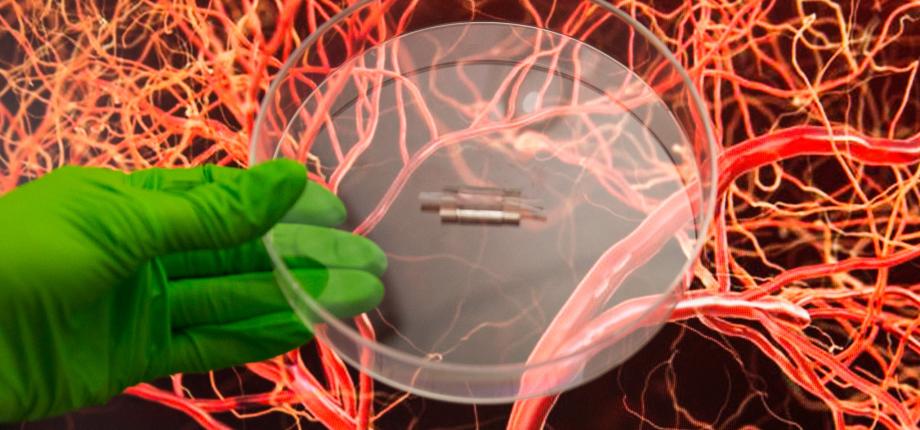Biomedical engineering symposium: what projects at the IP Paris level?

The second biomedical engineering symposium on 11 June 2021 brought together experts from the Institut Polytechnique de Paris to strengthen interactions between doctors and researchers. It allows for the development of joint research in order to respond effectively to the current challenges faced by practitioners. As a focal point of the day, the winners of the 2020 call for projects of the "Biomedical Engineering Seed Grant Program" were able to present the progress of their work. The Programme is led by Abdul Barakat, organiser of the event and CNRS research director at the Hydrodynamics Laboratory (LadHyX*) and professor at the École polytechnique.
The symposium also provided an opportunity for researchers from the École polytechnique, ENSTA Paris, Télécom Paris, Télécom SudParis, Inria and the Université Paris-Saclay to present their projects. These talks dealt with such topics as the detection of biomarkers revealing lung pathologies by imaging, new imaging techniques and image analysis platforms, and the contribution of artificial intelligence and deep neural networks to the analysis of medical images.
The second part of the day was an opportunity for Eric Labaye to thank the Bettencourt Schueller Foundation for its support of the "Biomedical Engineering Seed Grant Program". He was also able to underscore his attachment to the biomedical engineering projects taking place within the Institut Polytechnique de Paris, and to personally congratulate the winners of the call for projects. Armand de Boissière, Secretary General of the Bettencourt Schueller Foundation, was also able to affirm the importance of the sponsorship programme in the eyes of the Foundation, as well as its commitment as a sponsor to support the permanent construction of dialogue between doctors and researchers, which is crucial for the healthcare of the present and the future.
The day ended with a presentation by Alexandre Mebazaa, professor at the University of Paris, head of the Department of Anesthesia – Intensive care at Saint-Louis and Lariboisière Hospitals and director of the Inserm MASCOT Unit. He was able to share with us the challenges faced by intensive care units, particularly during the Covid-19 crisis, the ethical problems linked to the pandemic and the hospital system, as well as the obstacles to the integration of AI into the healthcare system.
This day was an opportunity to show the success of biomedical engineering projects at the level of IP Paris, which is also reflected in the establishment of the BERTIP University Research School. The convergence of efforts in this field of research underlines the forthcoming establishment of the Institute's biomedical engineering centre.
*LadHyX: a joint research unit CNRS, École Polytechnique - Institut Polytechnique de Paris
About the Program:
The ongoing medical revolution, which involves the development of more personalised, connected and targeted medicine, presents multiple challenges. In order to respond to this, the "Biomedical Engineering Seed Grant Program", supported by the Bettencourt Schueller Foundation, supports innovative research projects to establish a link between researchers in the physical sciences/engineers and physicians. This Program thus accelerates the integration of innovative techniques and technologies in the medical field.













